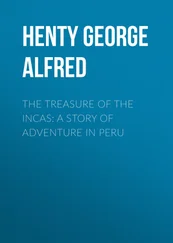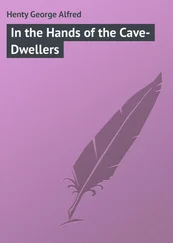George Henty - The March to Magdala
Здесь есть возможность читать онлайн «George Henty - The March to Magdala» — ознакомительный отрывок электронной книги совершенно бесплатно, а после прочтения отрывка купить полную версию. В некоторых случаях можно слушать аудио, скачать через торрент в формате fb2 и присутствует краткое содержание. Жанр: foreign_prose, на английском языке. Описание произведения, (предисловие) а так же отзывы посетителей доступны на портале библиотеки ЛибКат.
- Название:The March to Magdala
- Автор:
- Жанр:
- Год:неизвестен
- ISBN:нет данных
- Рейтинг книги:4 / 5. Голосов: 1
-
Избранное:Добавить в избранное
- Отзывы:
-
Ваша оценка:
- 80
- 1
- 2
- 3
- 4
- 5
The March to Magdala: краткое содержание, описание и аннотация
Предлагаем к чтению аннотацию, описание, краткое содержание или предисловие (зависит от того, что написал сам автор книги «The March to Magdala»). Если вы не нашли необходимую информацию о книге — напишите в комментариях, мы постараемся отыскать её.
The March to Magdala — читать онлайн ознакомительный отрывок
Ниже представлен текст книги, разбитый по страницам. Система сохранения места последней прочитанной страницы, позволяет с удобством читать онлайн бесплатно книгу «The March to Magdala», без необходимости каждый раз заново искать на чём Вы остановились. Поставьте закладку, и сможете в любой момент перейти на страницу, на которой закончили чтение.
Интервал:
Закладка:
While I have been writing this the Beloochees and a company of Bombay Sappers and Miners have marched into camp, with their baggage and camels. The Beloochees are a splendid regiment – tall, active, serviceable-looking men as ever I saw. Their dress is a dark-green tunic, with scarlet facings and frogs, trousers of a lighter green, a scarlet cap, with a large black turban around it; altogether a very picturesque dress. The Sappers and Miners are in British uniform. Both these corps go on early to-morrow morning to Upper Sooro. I have not decided yet whether I shall accompany them, or go on by myself this evening.
A letter has just come down from Colonel Merewether saying that all is going on well at Senafe. The King of Tigré has sent in his adhesion, and numbers of petty chiefs came in riding on mules, and followed by half-a-dozen ragged followers on foot, to make their “salaam.” I do not know that these petty chiefs, who are subjects of the King of Tigré, are of much importance one way or another, but their friendship would be useful if they would bring in a few hundred head of bullocks and a few flocks of sheep. It is, I understand, very cold up there, and the troops will have need of all their warm clothing.
Upper Sooro, December 13th.I must begin my letter by retracting an opinion I expressed in my last, namely, that the defile would probably turn out a complete bugbear, as the fevers, guinea-worm, and tetse flies have done. My acquaintance with most of the passes of the Alps and Tyrol is of an extensive kind, but I confess that it in no way prepared me for the passage of an Abyssinian defile. I can now quite understand travellers warning us that many of these places were impracticable for a single horseman, much less for an army with its baggage-animals. Had not Colonel Merewether stated in his report that the first time he explored the pass he met laden bullocks coming down it, I should not have conceived it possible that any beast of burden could have scrambled over the terrible obstacles. Even now, when the Bombay Sappers have been at work for three weeks upon it, it is the roughest piece of road I ever saw, and only practicable for a single animal at once. It is in all twelve miles; at least, so it is said by the engineers, and we took, working hard, seven hours to do it; and I found that this was a very fair average time. A single horseman will, of course, do it in a very much shorter time, because there are miles together where a horse might gallop without danger. I remained at Koomaylo until the afternoon, as it was too hot to start till the sun was low. Nothing happened during the day, except the arrival of the Beloochees and Bombay Engineers. The soldiers had two or three more chases after the monkeys, of which there are extra ordinary numbers. I need hardly say that they did not catch any of them: a dog, however, belonging to one of the soldiers seized one for a moment, but was attacked with such fury by his companions that it had to leave its hold and beat a precipitate retreat. I have just been watching a flock or herd – I do not know which is the correct term – of these animals, two or three hundred in number, who have passed along the rocks behind my tent, at perhaps thirty yards’ distance. They have not the slightest fear of man, and even all the noise and bustle of a camp seem to amuse rather than alarm them. They are of all sizes, from the full-grown, which are as large as a large dog, down to tiny things which keep close to their mothers, and cling round their necks at the least alarm. The old ones make no noise, but step deliberately from rock to rock, sitting down frequently to inspect the camp, and indulge in the pleasure of a slight scratch. These full-sized fellows have extremely long hair over the head and upper part of the body, but are bare, disagreeably so, towards the caudal extremity. The small ones scamper along, chattering and screaming; they have no mane or long hair on the head. The old monkeys, when they do make a sound, bark just like a large dog. In the afternoon an enormous number of locusts came down the pass, and afforded amusement and diet to flocks of birds, who were, I observed, rather epicures in their way, for on picking up many of the dead bodies of the locusts, I found that in every case it was only the head and upper part of the thorax which had been eaten. I shall accept this as a hint; and in case of the starvation days with which this expedition is threatened – in addition to innumerable other evils – really coming on, I shall, when we are driven to feed on locusts, eat only the parts which the birds have pointed out to me as the tit-bits. I am happy to say that there is no probability of our being driven to that resource at present; for on our way here yesterday I passed considerable quantities of native cattle, and any quantity is procurable here, and as for goats they are innumerable. We bought one this morning for our servants for the sum of a rupee. The commissariat have made up their minds that all servants and followers must be Hindoos, and therefore abstainers from meat, and so issue no meat whatever in their rations – nothing, indeed, except rice, grain, a little flour, and a little ghee. Now, the fact is that the followers are generally not Hindoos. Many of the body-servants are Portuguese, Goa men; and the horse-keepers are frequently Mussulmans, or come from the north-west provinces, where they are not particular. Even the mule-drivers are Arabs, Egyptians, and Patans, all of whom eat flesh. It thus happens that the whole of our five servants are meat-eaters, and it is fortunate that we are able to buy meat from the natives for them, especially as they have really hard work to do; and in the cold climate we shall enter in another day or two meat is doubly necessary.
We had intended to start at three o’clock, but it was four before our baggage was fairly disposed upon the backs of the four baggage-animals – two strong mules and two ponies – and we were in the saddles of our riding-horses. Our route, after leaving the wells, ran, with of course various turnings and windings, in a south-westerly direction. The way lay along the bottom of the valley, a road being marked out by the loose stones being removed to a certain extent, and laid along both sides of the track. The valley for the first seven or eight miles was very regular, of a width of from 200 to 300 yards. Its bottom, though really rising gradually, appeared to the eye a perfect flat of sand, scattered with boulders and stones, and covered with the thorny jungle I have spoken of in a previous letter. This scrub had been cleared away along the line of road, or there would have been very little flesh, to say nothing of clothes, left upon our bones by the time we came to our journey’s end. Backward and forward, across the sandy plain, as the spurs of the hills turned its course, wound the bed of the torrent – I should think that we crossed it fifty times. It is probable that on occasions of great floods the whole valley is under water. To our left the hills, though rocky and steep, sloped somewhat gradually, and were everywhere sprinkled with bushes. On the right the mountain was much more lofty, and rose in many places very precipitously. Sometimes the valley widened somewhat, at other times the mountains closed in, and we seemed to have arrived at the end of our journey, until on rounding some projecting spur the valley would appear stretching away at its accustomed width. Altogether, the scenery reminded me very much of the Tyrol, except that the hills at our side were not equal in height to those which generally border the valleys there.
At half-past six it had become so dark that we could no longer follow the track, and the animals were continually stumbling over the loose stones, and we were obliged to halt for half-an-hour, by which time the moon had risen over the plain; and although it was some time longer before she was high enough to look down over the hill-tops into our valley, yet there was quite light enough for us to pursue our way. In another three-quarters of an hour we came upon a sight which has not greeted my eyes since I left England, excepting, of course, in my journey through France – it was running water. We all knelt down and had a drink, but, curiously enough, although our animals had been travelling for nearly four hours enveloped in a cloud of light dust, they one and all refused to drink; indeed, I question if they had ever seen running water before, and had an idea it was something uncanny. This place we knew was Lower Sooro, not that there was any village – indeed, I begin to question the existence of villages in this part of the world, for I have not yet seen a single native permanent hut, only bowers constructed of the boughs of trees and bushes. But in Abyssinia it is not villages which bear names; it is wells. Zulla, and Koomaylo, the Upper and Lower Sooro, are not villages, but wells. Natives come and go, and build their bowers, but they do not live there. I fancy that when there is a native name, and no well, it is a graveyard which gives the name. We passed two or three of these between Koomaylo and Sooro, all similar to those I have already described. From Lower to Upper Sooro is a distance of four miles. It is in this portion of the road that the real difficulties of the pass are situated, and I never passed through a succession of such narrow and precipitous gorges as it contains. The sides of these gorges are in many places perfectly perpendicular, and the scenery, although not very lofty, is yet wild and grand in the extreme, and seen, as we saw it, with the bright light and deep shadows thrown by the full moon, it was one of the most impressive pieces of scenery I ever saw. The difficulty of the pass consists not in its steepness, for the rise is little over three hundred feet in a mile, but in the mass of huge boulders which strew its bottom. Throughout its length, indeed, the path winds its way in and out and over a chaos of immense stones, which look as if they had but just fallen from the almost overhanging sides of the ravine. Some of these masses are as large as a good-sized house, with barely room between them for a mule to pass with his burden. In many places, indeed, there was not room at all until the Bombay Sappers, who are encamped about half-way up the pass, set to work to make it practicable by blasting away projecting edges, and in some slight way smoothing the path among the smaller rocks. In some places great dams have been formed right across the ravine, owing to two or three monster boulders having blocked the course of the stream, and from the accumulated rocks which the winter torrents have swept down upon them. Upon these great obstacles nothing less than an army of sappers could make any impression, and here the engineers have contented themselves by building a road up to the top of the dam and down again the other side. We were three hours making this four-mile passage, and the labour, the shouting, and the difficulties of the way, must be imagined. Of course we had dismounted, and had given our horses to their grooms to lead. Constantly the baggage was shifting, and required a pause and a readjustment. Now our tin pails would bang with a clash against a rock one side; now our case of brandy – taken for purely medicinal purposes – would bump against a projection on the other. Now one of the ponies would stumble, and the other nearly come upon him; now one of the mules, in quickening his pace to charge a steep ascent, would nearly pull the one which was following, and attached to him, off his feet; then there would be a fresh alarm that the ponies’ baggage was coming off. All this was repeated over and over again. There were shouts in English, Hindostanee, Arabic, and in other and unknown tongues. Altogether it was the most fatiguing four miles I have ever passed, and we were all regularly done when we got to the top. I should say that the water had all this time tossed and fretted between the rocks, sometimes hidden beneath them for a hundred yards, then crossing and recrossing our path, or running directly under our feet, until we were within a few hundred yards of Upper Sooro, when the ravine widening out, and the bottom being sandy, the stream no longer runs above the surface. Altogether it was a ride to be long remembered, through that lonely valley by moonlight in an utterly unknown and somewhat hostile country, as several attempts at robbery have been made by the natives lately upon small parties; and although in no case have they attacked a European, yet everyone rides with his loaded revolver in his holster. A deep silence seemed to hang over everything, broken only by our own voices, except by the occasional thrill of a cicada among the bushes, the call of a night-bird, or by the whining of a jackal, or the hoarse bark of a monkey on the hills above.
Читать дальшеИнтервал:
Закладка:
Похожие книги на «The March to Magdala»
Представляем Вашему вниманию похожие книги на «The March to Magdala» списком для выбора. Мы отобрали схожую по названию и смыслу литературу в надежде предоставить читателям больше вариантов отыскать новые, интересные, ещё непрочитанные произведения.
Обсуждение, отзывы о книге «The March to Magdala» и просто собственные мнения читателей. Оставьте ваши комментарии, напишите, что Вы думаете о произведении, его смысле или главных героях. Укажите что конкретно понравилось, а что нет, и почему Вы так считаете.












